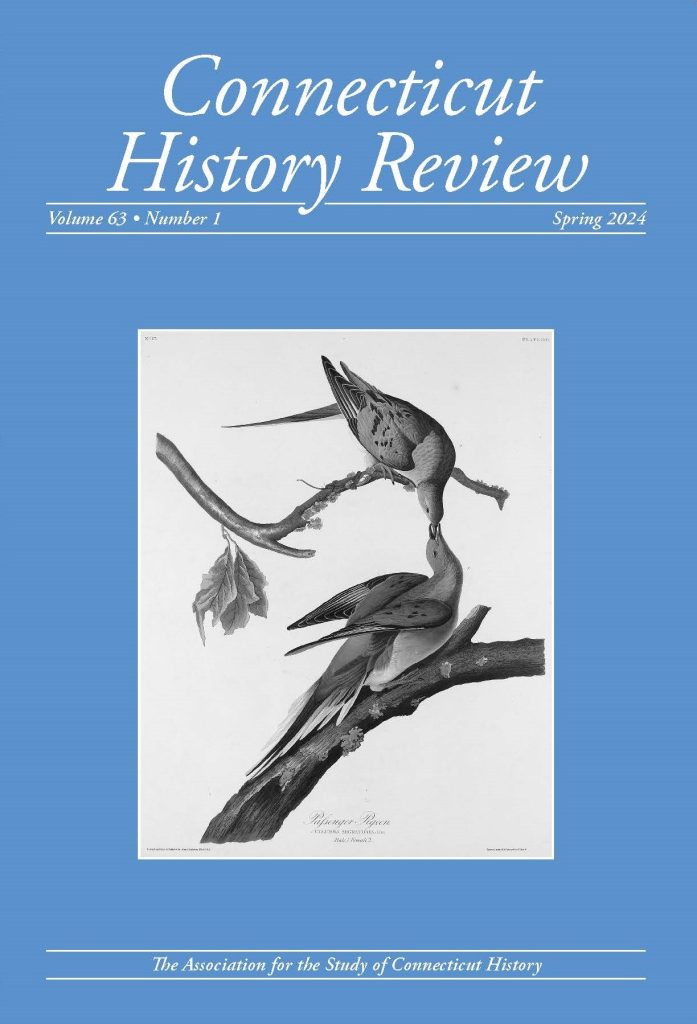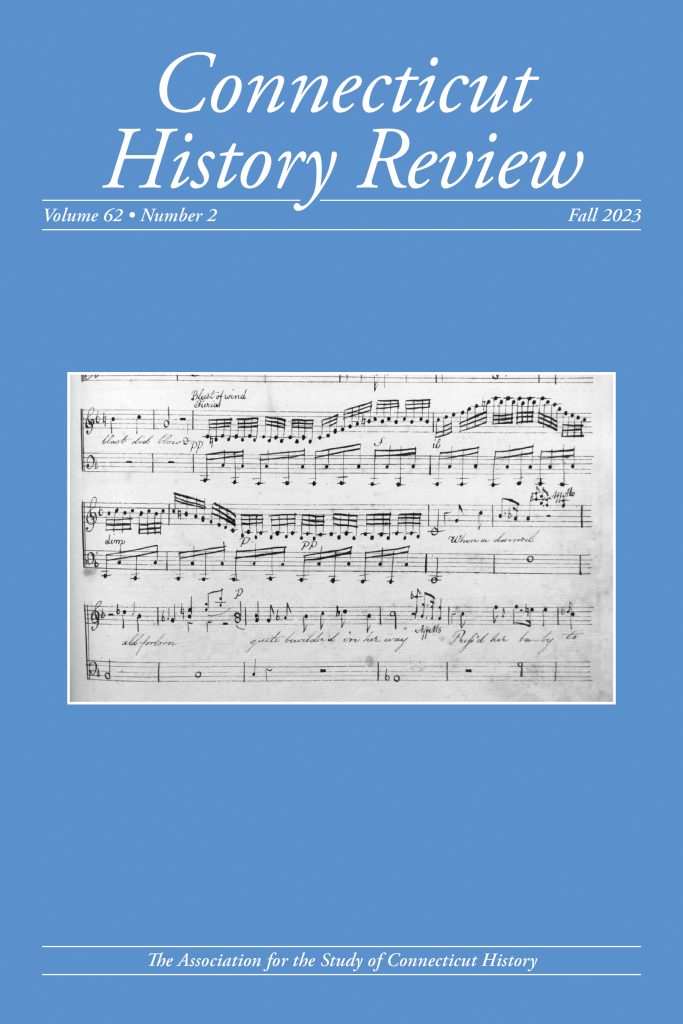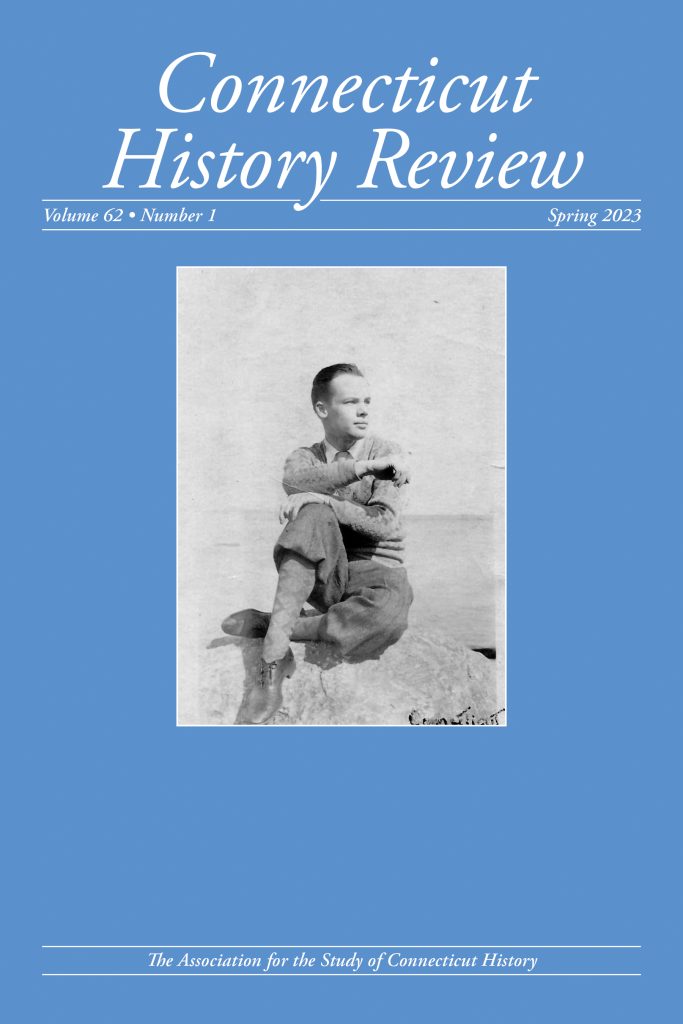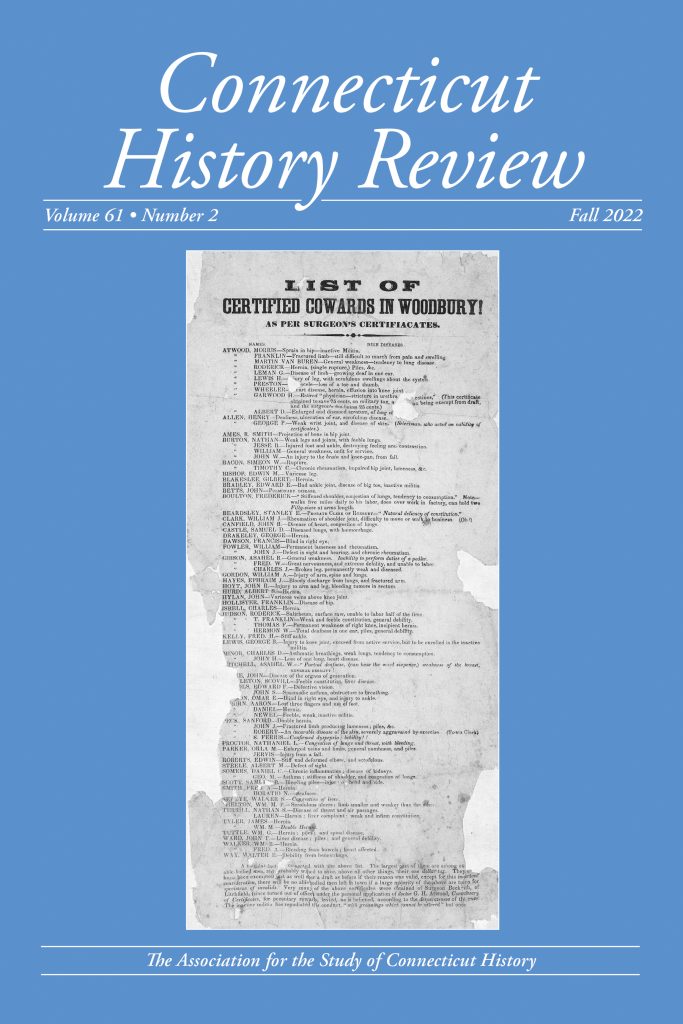Today is National Connecticut Day! To celebrate the long history of the fifth state to join the union, we’re highlighting some articles from Connecticut History Review.
The following articles include fascinating details and analysis of Connecticut’s place in various fraught and eventful historical periods. Keep reading and explore Yale during the Korean War, a Commander’s letters from the Civil War, “Lost Generation” literary figures, and Colonial resistance against the Stamp Act.

Free to Access from Aug. 10, 2024 to Oct. 31, 2024: “Yale and the Forgotten War: An American University’s Response to the Korean War” by Andrew Song (Vol. 63, Iss. 1)
This paper consequently explores how the Korean War changed one of the world’s leading universities and one of Connecticut’s most iconic institutions. To understand the Korean War’s influence on Yale, Song first documents the college’s historic relationship with Korea preceding the conflict. He then analyzes the responses of the administration, students, and campus organizations. From these discussions, Songs argues that Yale collectively engaged the war with skepticism and hesitation and that Yale’s priorities centered around the battle for financial solvency and its determination to maintain its higher education identity as a liberal arts college.

Free to Access from Nov. 1, 2024 to Jan. 31, 2025: “General Affections: Griffin Alexander Stedman and Romantic Friendships During the Civil War” by Stephen Arel-Klein (Vol. 62, Iss. 2)
In 1863 Griffin Alexander Stedman, commander of the Connecticut Eleventh Infantry, wrote a series of letters to Charles J. Hoadley, during the height of the Civil War. They had a close and intimate relationship, one that went beyond the standard polite niceties of nineteenth-century letter writing. This correspondence is a classic example of what historians have deemed “romantic friendships.” Analyzing Stedman’s letters in greater detail sheds light on how his romantic friendship with Hoadley stood out, not just because it is between two upper-class men, but for how this need for intimacy and longing contrasted with the expectations of masculinity that later generations tried to emulate.

Free to Access from Feb. 1, 2025 to April 30, 2025: “John Hyde Preston: Lost Writer of 1930s Connecticut” by Richard Lenzi (Vol. 62, Iss. 1)
John Hyde Preston—talented novelist, essayist, historian, and critic—dropped from the sight of the literary public over eight decades ago. This essay is an attempt to explore Preston’s rise first as a writer of the “Lost Generation,” his evolution as cultural figure and activist in the Popular Front period of the 1930s, and his subsequent fading from the scene. It is also part of a deeper research project into other “lost” radical writers who based themselves in Connecticut mainly, but not exclusively, during the Depression decade, either writing about the state or taking part in political activities there.

Free to Access from May 1, 2025 to July 31, 2025: “The Weathersfield Affair” by Jon Kukla (Vol. 61, Iss. 2)
This article tells the story of Jared Ingersoll, appointed as Stamp Minister for the colony of Connecticut by the British, and the well-organized protests he faced in response to the Stamp Act. In September of 1765, Connecticut riders encircled him a few miles south of Weathersfield and pressured him to resign, taking a rebellious step against imperial authority. It is an important event in the state’s colonial history from early on the road to American Revolution, notable as an example of impressive and effective community organizing.
Find Out More
- Listen to our podcast with editor Marie Basile McDaniel.
- Individual Subscriptions can be made through the University of Illinois Press website.
- To recommend this title to your library, fill out this Library Request Form.
- Ready to see your work featured in Connecticut History Review? Submit original scholarly work here.
- Check out our other American History journals: Journal of American Ethnic History, Journal of Illinois State Historical Society, Journal of the Abraham Lincoln Association, and Utah Historical Quarterly.
